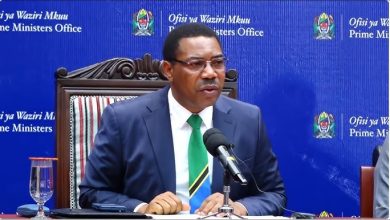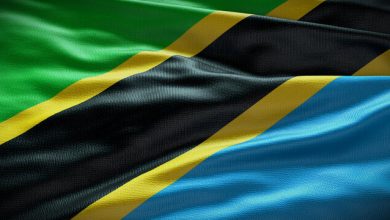Tanzania, Burundi hailed for strategic cross-border SGR project

DAR ES SALAAM: ACADEMICS and analysts have lauded Tanzania and Burundi for forging a strategic partnership in implementing a cross-border electric Standard Gauge Railway (SGR) project, saying it will significantly boost trade volumes and enhance regional economic integration.
The two countries on Saturday officially launched the construction of a 300-kilometre electric SGR line worth 2.54 billion US dollars (about 6tri/-), connecting Uvinza in Tanzania’s Kigoma Region to Musongati in Burundi.
Speaking to the Daily News following the project execution launch, a Business and Entrepreneurship Lecturer at the Saint Augustine University of Tanzania (SAUT), Dr Sylvester Jotta described the SGR project as a milestone in strengthening bilateral ties and fostering regional integration through modern transport infrastructure.
“With Burundi being land-linked, the SGR will ease its import and export activities through the Dar es Salaam Port, serving not only Bujumbura but also acting as a vital trade route for neighbouring countries such as the Democratic Republic of Congo (DRC) and Rwanda,” Dr Jotta said.
He noted that the crossborder electric SGR would substantially increase trade volumes between Tanzania and Burundi, compared to the current situation where no railway link exists between the two nations.
Dr Jotta also said that the railway, complemented by inland ports like Kwala and Isaka, would significantly reduce transit times and ease traffic congestion on key routes to Dar es Salaam, particularly by reducing heavy truck traffic from Burundi and beyond.
“It will be a great relief for transporters by ensuring timely delivery of goods,” he said.
He further praised Tanzania for continuing to leverage its strategic geographical position by implementing joint infrastructure projects with neighbouring countries, including the East African Crude Oil Pipeline (EACOP) with Uganda.
“Tanzania is positioning itself as a strategic connector for the Great Lakes region,” Dr Jotta added.
Echoing similar sentiments, an expert in economic diplomacy from the University of Arusha, Professor Kitojo Wetengere said the electric SGR will be a gamechanger for cross-border trade due to its efficiency and cost-effectiveness.
“There’s no other transport mode as efficient and affordable as an electric railway,” Prof Wetengere noted.
He said the project is expected to increase the volume of Burundian cargo using Dar es Salaam Port while facilitating the seamless movement of goods and services between the two countries.
He added that it would also stimulate investment in various sectors such as real estate and agriculture to meet growing market demands.
ALSO READ: Burundi and Tanzania: Building Africa’s future through partnership
Prof Wetengere also underscored the job creation potential of the project, both during construction and after its completion.
A political and economic analyst at the Institute of Accountancy Arusha (IAA), Dr Adam Mnyavanu said the project aligns with the African Union’s Agenda 2063, which envisions improved connectivity and continental integration.
“This SGR project will help unlock intra-African trade, which has been constrained by poor cross-border transport networks for decades,” he said.
Dr Mnyavanu added that in addition to economic benefits, the railway would promote cultural exchange between Tanzania, Burundi and other regional nations.
The project, financed by the African Development Bank (AfDB), will be constructed under a design-andbuild model using American Railway Engineering and Maintenance-of-Way Association (AREMA) standards.
It will accommodate both freight and passenger transport.
The 300-kilometre railway line includes 240 kilometres of main line and 60 kilometres of passing loops.
The Uvinza–Malagarasi section in Tanzania spans 190 kilometres, while the Malagarasi–Musongati segment in Burundi covers 110 kilometres.
The project is expected to be completed within six years, including a one-year trial run.
Upon completion, it will link Burundi’s mineral-rich Musongati region, known for its nickel deposits to the port of Dar es Salaam, boosting both trade and regional integration.





